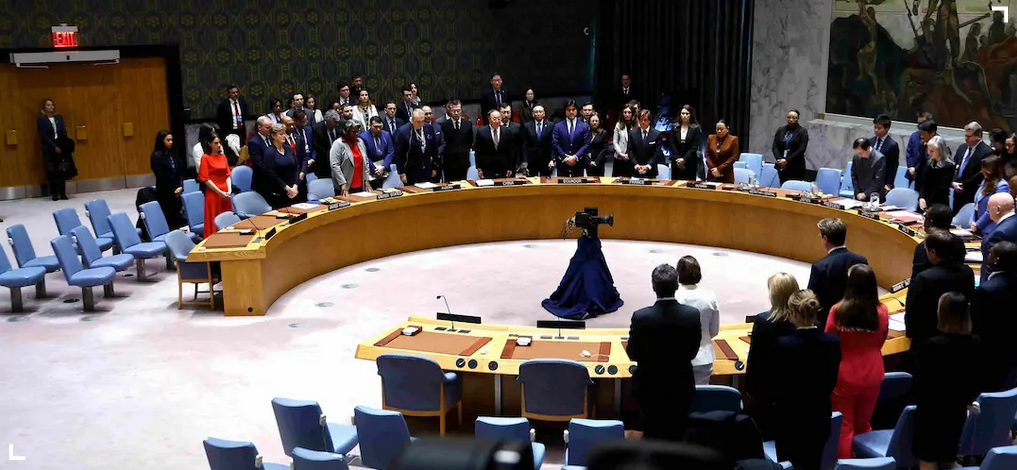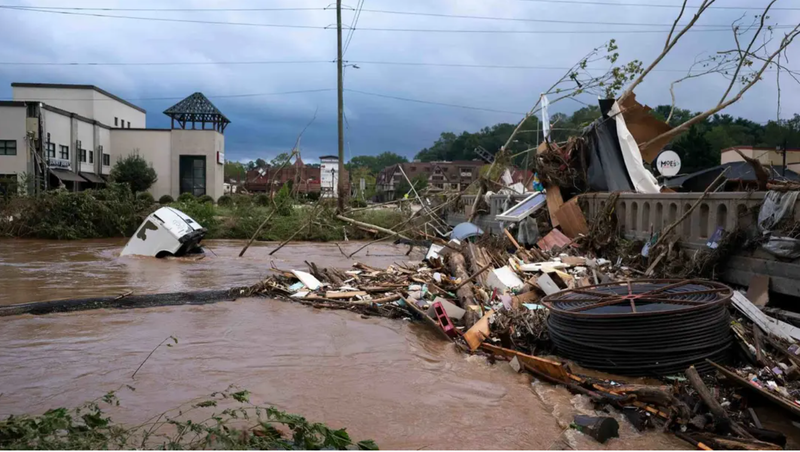UNSC Votes in Favor of Gaza Cease-fire, US Abstains
The UN Security Council (UNSC) passed a resolution on Monday calling for an immediate cease-fire in Gaza and the immediate and unconditional release of all Israeli hostages.
Facts
- The UN Security Council (UNSC) passed a resolution on Monday calling for an immediate cease-fire in Gaza and the immediate and unconditional release of all Israeli hostages. US National Security Council spokesman John Kirby said there was no "shift in our policy," adding that the US backed a cease-fire but did not vote in favor of the resolution because the text did not condemn Hamas.1
- Seemingly in response to the US abstention, Israeli Prime Minister Benjamin Netanyahu announced that he would not send an Israeli delegation to Washington to discuss alternatives to a major push into Rafah. Kirby said the US was "disappointed" by Netanyahu's decision.2
- Israeli Defense Minister Yoav Gallant, who is currently in the US on an official visit separate to the delegation that was originally supposed to arrive Monday, called the UNSC resolution "scandalous," warning that if Israel did not achieve a "clear and absolute victory" in Gaza, the situation on Israel's northern border with Lebanon could escalate.3
- As tensions with the US continue to simmer over a Rafah offensive and the amount of aid entering Gaza, the UN's primary agency for Palestinian refugees (UNRWA) — which Israel accuses of working with Hamas — said on Sunday that Israel had barred it from delivering aid to northern Gaza.4
- UNRWA Commissioner-General Philippe Lazzarini said that Israel had created "a man-made famine" in northern Gaza, calling its decision "outrageous."5
- Heavy fighting erupted in Khan Younis on Monday after Israeli forces encircled the al-Amal and Nasser hospitals. Last week, Israeli forces conducted a raid into al-Shifa Hospital in northern Gaza, and Israel has said Hamas uses hospitals as military bases. Though attacks have significantly decreased, rockets from Gaza were also fired into southern Israel.6
Sources: 1BBC News, 2The Times of Israel (a), 3The Times of Israel (b), 4The Guardian, 5UN News and 6Reuters.
Narratives
- Pro-establishment narrative, as provided by CBS. The US is doing everything it can to both ensure that Israel can eliminate Hamas' military capabilities and prevent regional escalation. Israel must be able to defend itself from terrorist attacks, whether from Gaza or elsewhere, and the US will always support Israel in maintaining its security. However, Netanyahu is going too far with the war in Gaza, and he must be willing to follow through on his promises and compromise as needed so that another extended truce can take effect, which will hopefully lead to a more permanent resolution to this conflict. Security can only come through peace.
- Pro-Israel narrative, as provided by JNS. Allowing the UNSC to pass such an outrageous resolution demonstrates that the Biden admin. no longer believes that supporting Israel is worth the political capital. Caving to pro-Hamas fanatics, Biden is willing to throw Israelis under the bus to try and salvage his political career. The world has forgotten the atrocities Hamas committed on Oct. 7 and Israel's moral duty to protect its citizens. This resolution only serves to support Hamas' political narrative.
- Pro-Palestine narrative, as provided by The Nation. Though the Biden admin. may produce crocodile tears on command over the suffering of Palestinians in Gaza, in reality, US military support for Israel is the primary reason the war has lasted this long. Israel would simply not be able to maintain a war of this magnitude for such a long period of time without overwhelming US intervention, yet Biden behaves as if it is Israel that calls the shots. Palestinians are starving to death in a man-made famine, and all the US can do is express "disappointment" and abstain on watered-down UNSC resolutions.
Predictions







